
Steve Lacy was an American jazz saxophonist and composer recognized as one of the important players of soprano saxophone. Coming to prominence in the 1950s as a progressive dixieland musician, Lacy went on to a long and prolific career. He worked extensively in experimental jazz and to a lesser extent in free improvisation, but Lacy's music was typically melodic and tightly-structured. Lacy also became a highly distinctive composer, with compositions often built out of little more than a single questioning phrase, repeated several times.

Cecil Percival Taylor was an American pianist and poet.

Matthew Shipp is an American avant-garde jazz pianist, composer, and bandleader.

Mat Maneri is an American composer, violin, and viola player. He is the son of the saxophonist Joe Maneri and Sonja Maneri.

Cecil Taylor Unit is an album by Cecil Taylor recorded in April 1978 and released on the New World label. The album features three performances by Taylor on piano with alto saxophonist Jimmy Lyons, trumpeter Raphe Malik, violinist Ramsey Ameen, bassist Sirone and drummer Ronald Shannon Jackson. The album was recorded during the same sessions that produced 3 Phasis. Taylor is heard on a 96-key Bösendorfer piano about which he commented: it "will stop you cold if you're not ready."

Live in the Black Forest is a live album by Cecil Taylor recorded in June 1978 at the SWF-Radio JazzConcert in Kirchzarten, Black Forest, West Germany, and released on the MPS label. The album features two performances by Taylor with Raphe Malik, Jimmy Lyons, Ramsey Ameen, Sirone and Ronald Shannon Jackson.

Trinity is a solo album by American composer, improviser and jazz violin and viola player Mat Maneri recorded in 1999 and released in 2001 on the ECM label.
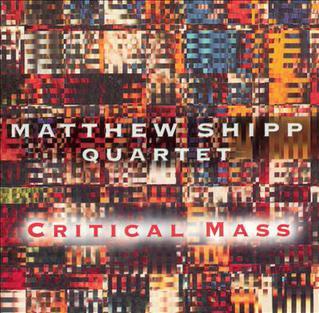
Critical Mass is an album by American jazz pianist Matthew Shipp which was recorded in 1994 and released on 2.13, a division of the 2.13.61 label, founded by Henry Rollins. Shipp adds violinist Mat Maneri to his usual trio lineup with bassist William Parker and drummer Whit Dickey. Shipp met Maneri when the violinist was just 17 in Boston, this is their first collaboration on record.
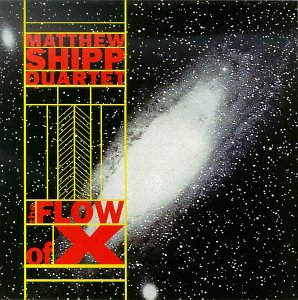
The Flow of X is an album by the American jazz pianist Matthew Shipp, recorded in 1995 and released on the 2.13.61 label. It features a quartet with violinist Mat Maneri, bassist William Parker and drummer Whit Dickey, the same lineup as the previous album Critical Mass. The liner notes include a piece by Shipp comparing boxing and jazz.

By the Law of Music is an album by American jazz pianist Matthew Shipp which was recorded in 1996 and released on the Swiss HatART label. It was re-released on the hatOLOGY imprint in 2002.
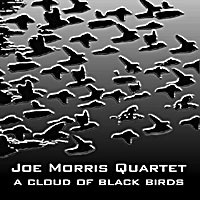
A Cloud of Black Birds is an album by the American jazz guitarist Joe Morris, recorded in 1998 and released on the AUM Fidelity label. It features a quartet with bassist Chris Lightcap, violinist Mat Maneri and drummer Jerome Deupree.

Expansion, Power, Release is an album by American jazz pianist Matthew Shipp which was recorded in 1999 and released on the Swiss hatOLOGY label. It was the second album by his String Trio with violinist Mat Maneri and bassist William Parker, the first was By the Law of Music.
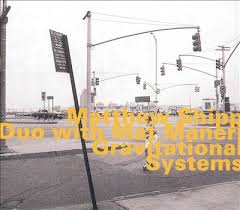
Gravitational Systems is an album by American jazz pianist Matthew Shipp featuring a duo with violinist Mat Maneri, which was recorded in 1998 and released on the Swiss hatOLOGY label. Shipp played previously with Maneri on the albums Critical Mass, The Flow of X and By the Law of Music, but this was their first duo performance. The recording includes a rendition of the English traditional song "Greensleeves" and a version of John Coltrane's classic "Naima".
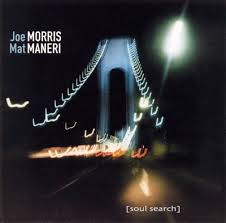
Soul Search is an album by American jazz guitarist Joe Morris featuring a duo with violinist Mat Maneri, which was recorded in 1999 and released on the AUM Fidelity label.

Lift & Poise, subtitled 12 Improvised Movements, is an album by jazz pianist Pandelis Karayorgis and violinist Mat Maneri, which was recorded between 1996 and 1997 and released on Leo Lab, a sublabel of Leo Records. Karayorgis and Maneri play duo and solo free improvisations, as well as trio improvisations with Joe Maneri on clarinet and John Lockwood on bass. The leaders' two solo pieces take their names from the American painter Cy Twombly and a detail of one of his paintings is on the album's cover.

Disambiguation is an album by a quintet co-led by jazz pianist Pandelis Karayorgis and violinist Mat Maneri, which was recorded in 2001 and released on the English Leo label. Maneri had the idea to ask Karayorgis to write pieces for a quintet date with saxophonist Tony Malaby and bassist Michael Formanek already in mind. Drummer Randy Peterson was on pianist's trio and has long played with Mat in Joe Maneri's quartet.

In Time is an album by jazz violinist Mat Maneri and pianist Pandelis Karayorgis, recorded in 1993 and released on Leo Lab, a sublabel of Leo Records. The album includes six original pieces and two interpretations of Thelonious Monk composition "Ugly Beauty".

Out Right Now is a live album by pianist/saxophonist Joe Maneri, guitarist Joe Morris, and violinist Mat Maneri which was recorded in 1993 and released on the HatOLOGY label in 1997.

Incarnation is a live album by American pianist Cecil Taylor. It was recorded on November 4, 1999 during the "Total Music Meeting" at the "Podewil" in Berlin, and was released in 2004 by FMP. On the album, Taylor is joined by guitarist Franky Douglas, cellist Tristan Honsinger, and drummer Andrew Cyrille.

Almeda is a live album by Cecil Taylor recorded during the "Total Music Meeting" at the "Podewil", the headquarters of the Kulturprojekte Berlin non-profit organisation, on November 2, 1996, and released in 2004 on the FMP label. The album features Taylor with eight other musicians, and is a recording of a single performance lasting over an hour. The same group recorded the album The Light of Corona the following day. In 2012, FMP also released Almeda , with the same musicians, as part of their Archive Edition.




















